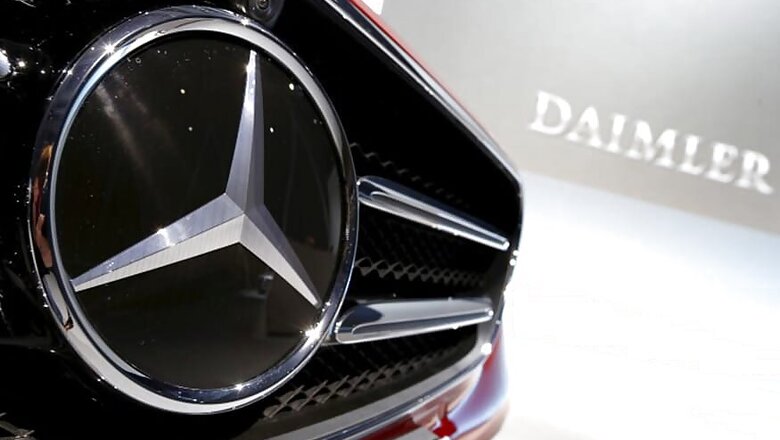
views
Mercedes-Benz maker Daimler is embracing Silicon Valley management techniques in a drive to speed up decision making, empower staff and fend off new rivals such as electric carmaker Tesla Motors.
Chief Executive Dieter Zetsche is sweeping away layers of bureaucracy and encouraging a more experimental approach to new products. He has also asked 144 employees - many of them from the rank and file - to generate new leadership ideas, according to sources at the German luxury automaker.
These are big changes for a company known for strict hierarchies and meticulous planning, and follow a trip by around 100 top managers to Silicon Valley last summer when they met executives from companies including Apple, Google and Uber.
The changes will be closely watched by rivals such as BMW and Audi as traditional carmakers weigh up how to respond to new technologies including autonomous driving and electric vehicles that have turned firms like Google and Tesla into rivals.
Daimler, whose founder invented the modern automobile 130 years ago, is investing heavily in electric vehicles and Zetsche has decided that in order to succeed, the company, as well as its product range, needs an overhaul.
Outlining some of his plans in June, he likened Daimler to a rhino but said its size - with twice Tesla's market capitalisation and 20 times the number of staff - did not mean it couldn't also be nimble and decisive.
"Rhinos are large, but they are not slow," Zetsche said.
Alexander Hilliger von Thile, a senior graphics and rendering manager at Mercedes-Benz research and development in North America, said Daimler was now encouraging ideas from all team members and not just the "Bereichsleiter" or department chiefs, as well as greater collaboration.
"We do not want to have experts who know everything, who sit somewhere and don't talk to anybody," he told Reuters.
Daimler, like many traditional carmakers, was initially sceptical about prospects for electric vehicles. According to a senior executive, Zetsche used to joke that Daimler, which owned a stake in Tesla from 2009-2014, was the only automaker to make money from electric cars when it sold out of that investment.
But advances in battery technology and the success of the Tesla Model S, which last year outsold Mercedes's flagship S-Class limousine in the United States, have changed that.
"We said before that if you are too early, you lose money. Now the view is if you are too late, you lose the market," the executive told Reuters, speaking on condition of anonymity.
The risks associated with releasing new technologies, however, were laid bare earlier this year when Tesla shares tumbled after news that a driver of one of its cars had been killed while using "autopilot" mode, an advanced cruise control tool that other automakers have taken a more cautious approach to introducing.


















Comments
0 comment